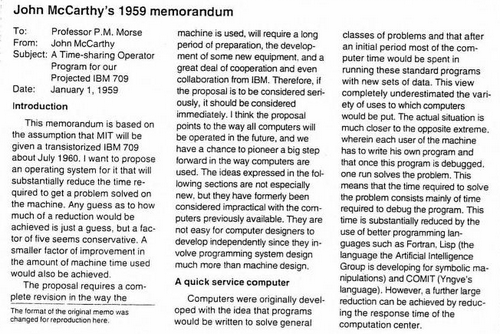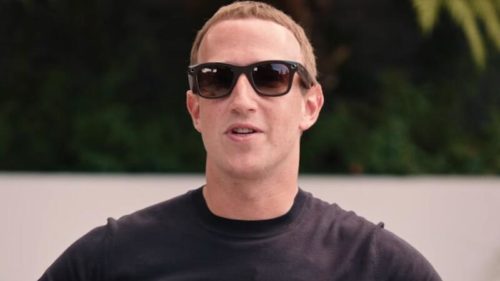Here is an interesting essay from a year ago, worth contemplating for the next year.
Democratic president Franklin Delano Roosevelt of New York had been far too progressive on racial issues for most southern Democrats, and when Harry S. Truman took office after FDR’s death, they were thrilled that one of their own was taking over. Truman was a white Democrat from Missouri who had been a thorough racist as a younger man, quite in keeping with his era’s southern Democrats.
But by late 1946, Truman had come to embrace civil rights. In 1952, Truman told an audience in Harlem, New York, what had changed his mind.
“Right after World War II, religious and racial intolerance began to show up just as it did in 1919,” he said. ”There were a good many incidents of violence and friction, but two of them in particular made a very deep impression on me. One was when a Negro veteran, still wearing this country’s uniform, was arrested, and beaten and blinded. Not long after that, two Negro veterans with their wives lost their lives at the hands of a mob.”
Injustice. Truman recognized gross violent injustice. He talked in 1946 about the Black experience in America like he hadn’t thought much about his own role in improving it for his entire life. Like he didn’t oppose all those lynchings and murders under the “America First” banner he knew about for the prior 30 years (“Late 1946… just as… 1919”).
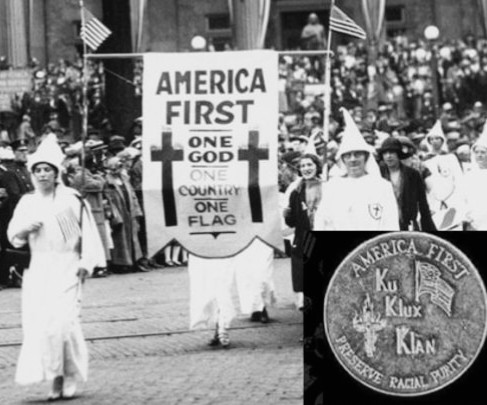
I think the Truman library doesn’t do him justice when it awkwardly and arguably unfairly tries to lavish him with praise for being so late to recognize Blacks as human.
It was assumed he would follow the lead of most other politicians of that time period and not show sympathy for African Americans’ goals for equal treatment.
To the astonishment of many, including many in his own party, on July 26, 1948 Harry Truman made one of the biggest contributions to date for racial integration and equality. In issuing Executive Order 9981 Truman ordered the desegregation of the armed forces. These documents trace what some call the beginning of the Civil Rights movement.
*cough*
*cough*
“Some call” what?
President Grant had signed into law the Civil Rights Act of 1875 (reaffirming The Civil Rights Act of 1866, which had overturned President Johnson’s veto).
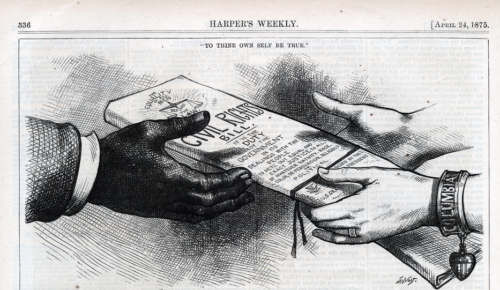
Notably the racists in America then did everything they could in the late 1800s to undermine and invalidate both Civil Rights Acts.
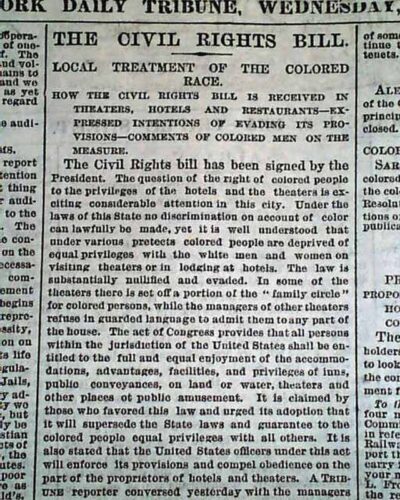
Yet President Truman more than 70 years late to the table is going to be credited for “the beginning of the Civil Rights movement”? NO.
…the concept of “civil rights” was established [immediately following General Grant’s victory in Civil War]. Grant was nearly universally revered by the time of his death in 1885. A monumental tomb in New York City was constructed in his honor as a result of what was the largest public fundraising campaign in history up to that time. However, what gains were made in the realm of civil rights were under assault by the time Grant died and almost completely destroyed by the turn of the century.
Destroyed by the turn of the century (1900) is a reference to highly decorated Black soldiers returning from the Spanish American war to violent racist injustice at home.
This was the tragedy that led into the horrible racist Woodrow Wilson elected President (1912), restarting the KKK (1915), forcing all Blacks out of public office, and unleashing federal and private troops to ruthlessley murder the Blacks who tried to organize or unionize for Civil Rights (Elaine 1919 and Tulsa 1921, etc.).
Domestic terrorist planes dropping napalm bombs on an American city to destroy Black prosperity, all-white fire departments standing down to instead throw hundreds or thousands of murdered American veterans into mass graves… all these Civil Rights movement battles somehow are overlooked by Truman for his adult years, while winning all his elections? Unlikely. He allegedly hated the KKK, for example, not least of all because the Kruel Klown Klub of America had inspired Hitler and dared to run candidates against him.
“Today — not tomorrow — we must do all that is humanly possible to provide a haven and place of safety for all those who can be grasped from the hands of the Nazi butchers. Free lands must be opened to them. Their present oppressors must know that they will be held directly accountable for their bloody deeds. To do all of this, we must draw deeply on our tradition of aid to the oppressed, and to our great national generosity. This is not a Jewish problem. It is an American problem — and we must and we will face it squarely and honorably.”
To everyone’s surprise he not only recognized Blacks, he brushed aside antisemitic rants from U.S. military and state department officials in 1948 to immediately recognize Israel.
Fun history fact: today, not tomorrow, was a war-time anti-Nazi slogan.
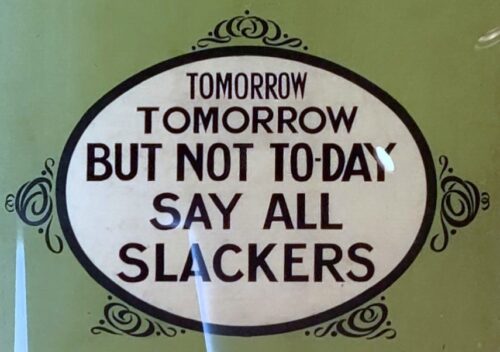
And that’s why Truman took Civil Rights action for Blacks right away in 1946, not back in 1919… Whoops.
Perhaps given his background in racism he never felt he could push ahead and enact a real change until he had won the executive right to do it at the highest level.
Truman is a very interesting politician for his career rising out of the horribly deceptive “Missouri compromise” of Civil War, and eventually coming out as anti-racist after being known as so racist. But his latter day public switch to the right side of history, more than a half century late, was most certainly NOT at the beginning of the Civil Rights movement.


